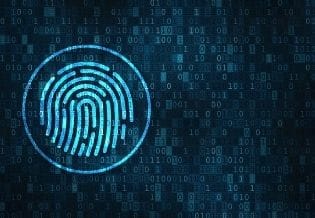About the Journal of Advanced Forensic Sciences
Advancing scientific rigor in forensic analysis through peer-reviewed research on analytical methods, trace evidence characterization, and forensic validation protocols.
Forensic science demands precision, reproducibility, and methodological transparency. JAFS provides a publication platform specifically designed for researchers who develop and validate analytical techniques that underpin forensic investigations. Whether you investigate trace evidence characterization, develop novel detection methods, or validate existing forensic protocols, JAFS offers rapid peer review and global dissemination through open access publishing.
Our editorial board comprises forensic chemists, analytical scientists, trace evidence specialists, and quality assurance professionals who evaluate manuscripts for scientific rigor, methodological soundness, and practical applicability. Every submission undergoes plagiarism screening, methodological review, and ethical compliance verification before entering the peer review process.
JAFS welcomes original research articles, comprehensive reviews, method validation studies, short communications, and other scholarly contributions that advance the scientific basis of forensic analysis. Our scope encompasses analytical techniques applicable to physical evidence examination, trace material characterization, and forensic chemistry.
Microscopic examination, fiber analysis, glass characterization, paint comparisons, soil analysis, and gunshot residue detection methodologies.
Drug analysis, toxicology methods, fire debris examination, explosive residue detection, chemical identification, and spectroscopic techniques.
Accuracy studies, precision testing, sensitivity assessments, specificity evaluations, quality control protocols, and interlaboratory comparisons.
Chromatographic techniques (GC, HPLC), mass spectrometry applications, spectroscopic methods (IR, Raman, XRF), microscopy innovations.
DNA extraction protocols, molecular analysis techniques, body fluid identification, biological evidence characterization.
Digital evidence acquisition, data recovery methods, image analysis techniques, audio forensics, metadata examination.
Fingerprint analysis methods, footwear pattern examination, tire track analysis, toolmark identification protocols.
Laboratory accreditation standards, proficiency testing, measurement uncertainty, standard operating procedures, error rate studies.
- Rigorous Peer Review: Expert evaluation by forensic scientists and analytical chemists ensures methodological soundness and scientific validity.
- Rapid Publication: Streamlined editorial workflows deliver first decisions within 18 days and publish accepted manuscripts within 4 days.
- Open Access Visibility: CC BY 4.0 licensing ensures unrestricted access for forensic laboratories, researchers, and practitioners worldwide.
- Quality Standards: Plagiarism screening, ethical compliance verification, and adherence to COPE guidelines protect research integrity.
- Indexing & Discoverability: Articles are indexed in forensic science databases, Google Scholar, and subject-specific repositories.
- No Geographic Barriers: Authors from all countries receive equitable editorial treatment, with fee waivers available for researchers from low-income nations.
JAFS invites high-quality manuscripts that advance forensic analytical methods. All submissions undergo plagiarism screening and expert peer review to ensure scientific rigor. Authors should prepare manuscripts according to our Instructions for Authors, following APA style formatting and ICMJE ethical guidelines.
- Review the Aims & Scope to confirm topic alignment with JAFS focus areas.
- Prepare your manuscript following APA formatting, including structured abstract, keywords, methodology, results, and discussion sections.
- Include an ethics compliance statement documenting approvals, informed consent, and adherence to relevant research standards.
- Submit via our electronic submission portal or email to [email protected].
- Respond promptly to reviewer feedback with a point-by-point rebuttal letter addressing all methodological concerns.
- Upon acceptance, collaborate with production editors for final proofing and metadata verification before publication.
The JAFS Editorial Board comprises internationally recognized forensic scientists, analytical chemists, and quality assurance specialists. Board members guide topic selection, evaluate manuscript quality, and ensure adherence to the highest scientific and ethical standards. Our editorial policies align with COPE guidelines, emphasizing transparency, fairness, and scientific integrity throughout the publication process.
Editorial Leadership
Our editorial leadership team brings diverse expertise spanning trace evidence analysis, forensic chemistry, digital forensics, and quality assurance. Editors work collaboratively to maintain rigorous peer review standards while ensuring efficient manuscript processing. Each submission receives tailored editorial guidance that strengthens methodological clarity and enhances the scientific contribution to forensic practice.
Visit our Editorial Board page to review the full list of board members and their areas of expertise.
JAFS operates under a Creative Commons Attribution 4.0 International (CC BY 4.0) license, allowing readers to freely access, download, share, and build upon published research with appropriate attribution. Authors retain copyright to their work, facilitating widespread dissemination and unrestricted use in educational, research, and professional contexts.
Article Processing Charges (APCs) support peer review operations, editorial management, plagiarism screening, copyediting, and publication infrastructure. Fee waivers and discounts are available for authors from low- and middle-income countries, early-career researchers, and unfunded studies. Contact our editorial office to discuss eligibility.
JAFS articles are discoverable through multiple indexing services, academic databases, and library catalogs to maximize visibility among forensic scientists, researchers, and practitioners worldwide. Our commitment to open access ensures that findings reach diverse audiences including governmental laboratories, private forensic consultancies, academic institutions, and quality assurance organizations.
- Google Scholar, Semantic Scholar, and other academic search engines
- Forensic science-specific databases and repositories
- University library discovery systems and institutional catalogs
- Crossref DOI registration for permanent citation linking
- Social media dissemination through ResearchGate, Academia.edu, and professional networks
Advance Forensic Science Through Rigorous Research
Publish your forensic analytical methods, validation studies, and method development research with a journal committed to scientific excellence and global accessibility. Join our community of forensic scientists advancing the reliability and precision of forensic analysis worldwide.


